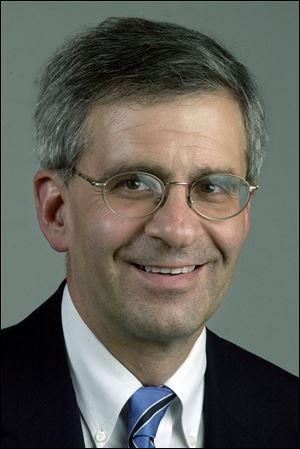
COMMENTARY
These races are weather vanes for 2016
4/20/2014
Shribman
It happens every four years: The political party on the defensive tries to portray races in off-year elections as individual ones without a unifying theme.
The party with the whip hand tries to portray these races as a national referendum on an important issue or on an unpopular president.
That’s happening again this year. Here is a guide to some races that may matter most:
● Iowa Senate. The issue is the political profile of Iowa, the site of the first presidential caucus in 2016. The focus is on the GOP Senate primary. Democrat Tom Harkin is retiring.
There is special attention to whether the nominee is identified with Iowa “Liberty Republicans,” who are basically members of the Tea Party, or with party regulars. The resolution of this contest — one of the candidates says she has experience castrating hogs, positioning her perfectly to cut pork — will provide insights about the character of the Iowa Republican caucuses a year from January.
● Illinois governor. Anything unusual that happens in a president’s home state is important — and a Bruce Rauner victory in the gubernatorial race in Illinois this fall would send an especially powerful message.
Mr. Rauner has a traditional Republican profile, emphasizing business values, government efficiency, reduced spending, and lower taxes.
His opponent is Gov. Pat Quinn, a traditional Illinois Democrat. But he has an untraditional Democratic problem — opposition from unions, in large measure because of his support for a pension plan that undermines public employees’ retirement plans.
This race will reveal more than who sits in the governor’s chair in Springfield. It will indicate whether the Democrats’ populist themes (increase millionaires’ taxes and keep the minimum wage above the federal level) or the Republicans’ populist themes (cut taxes, improve the commercial climate) prevail among alienated voters in a big state. The outcome will provide a hint of which campaign strategies might be effective in the 2016 presidential race.
● Florida governor. Again in 2012, the struggle for Florida’s 29 electoral votes, tied with New York as the third biggest prize in American presidential politics, was close — and, for a time, unresolved. In the end, President Obama prevailed, the final count giving him a victory with just a fraction over 50 percent of the vote.
With no Senate race this year, the battle for the governor’s office is the best indicator of Florida’s mood.
The incumbent is embattled GOP Gov. Rick Scott. His possible opponent is a former Republican governor, Charlie Crist, who was upset in the 2010 U.S. Senate primary by Marco Rubio, now a possible presidential nominee. Mr. Crist ran in that year’s general election anyway, finishing second as an independent. Two years later, he joined the Democratic Party.
In Florida, the principal issue is health care. Republicans have strong majorities in both houses of the legislature. When state lawmakers blocked the expansion of Medicaid, they provided an opening for Mr. Crist to charge that Mr. Scott was responsible for a situation where “six people in Florida die every day as a result.”
For his part, Mr. Scott and his allies have loosed attacks against Mr. Crist for his support of Obamacare.
On TV and on the Internet, the health battle is raging. Both parties believe health care is a formidable weapon for their side.
In a state with $192 billion a year in gross hospital patient revenues, there are few more important issues in Florida. As a result, there are few better indicators of the potency of the parties’ health-care profiles as a 2016 presidential issue.
David Shribman is executive editor of the Pittsburgh Post-Gazette.
Contact him at:dshribman@post-gazette.com